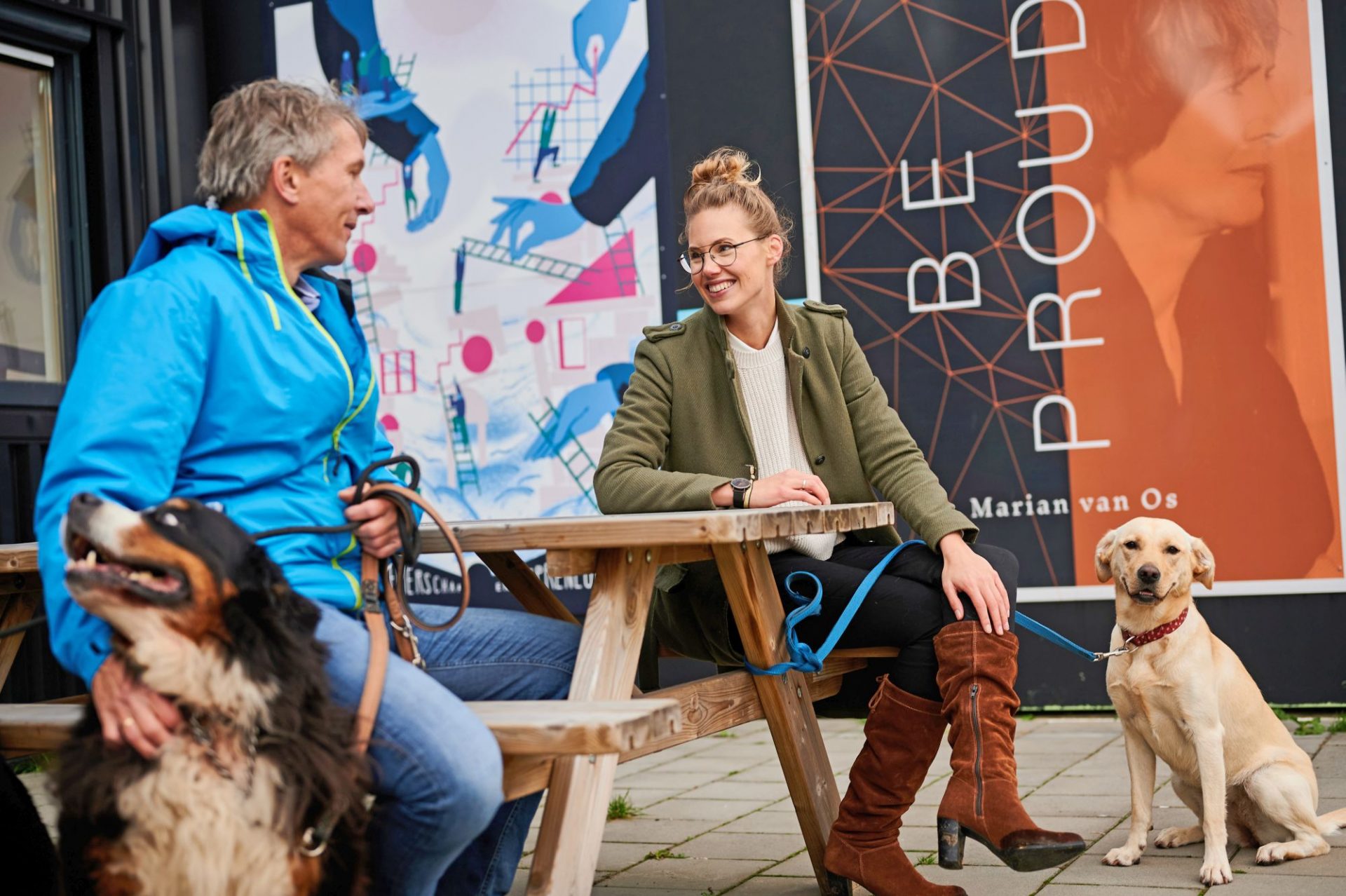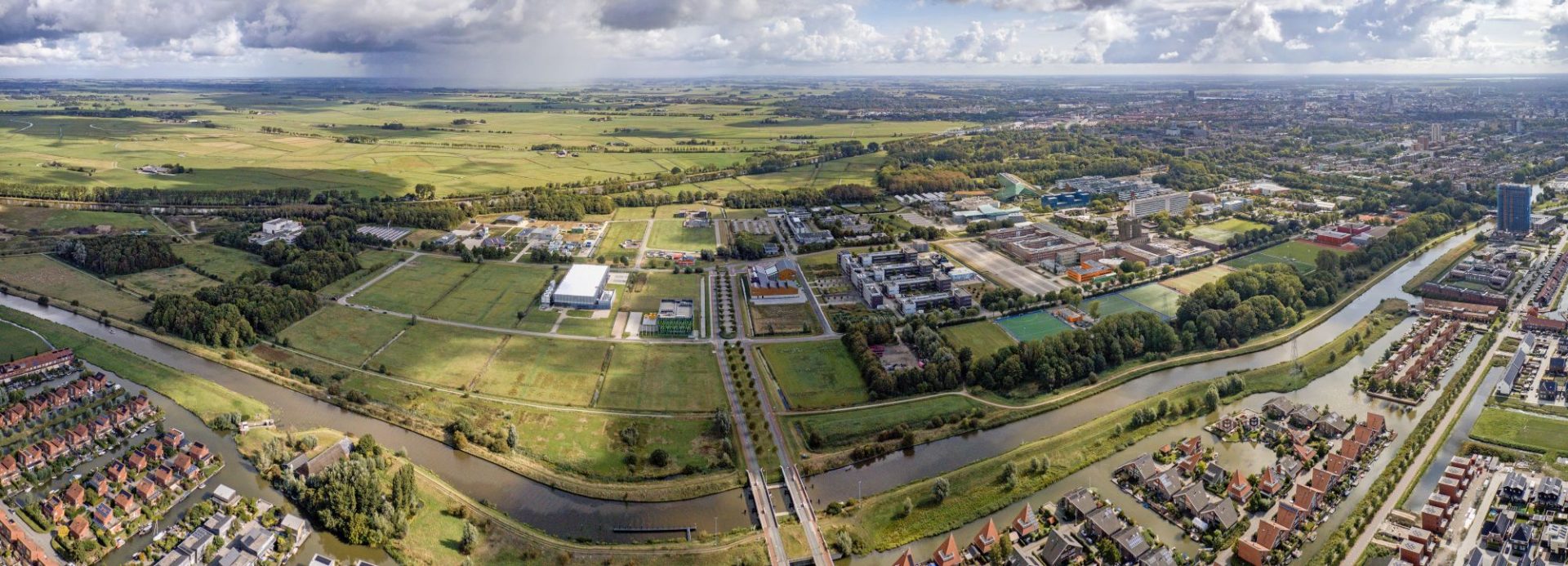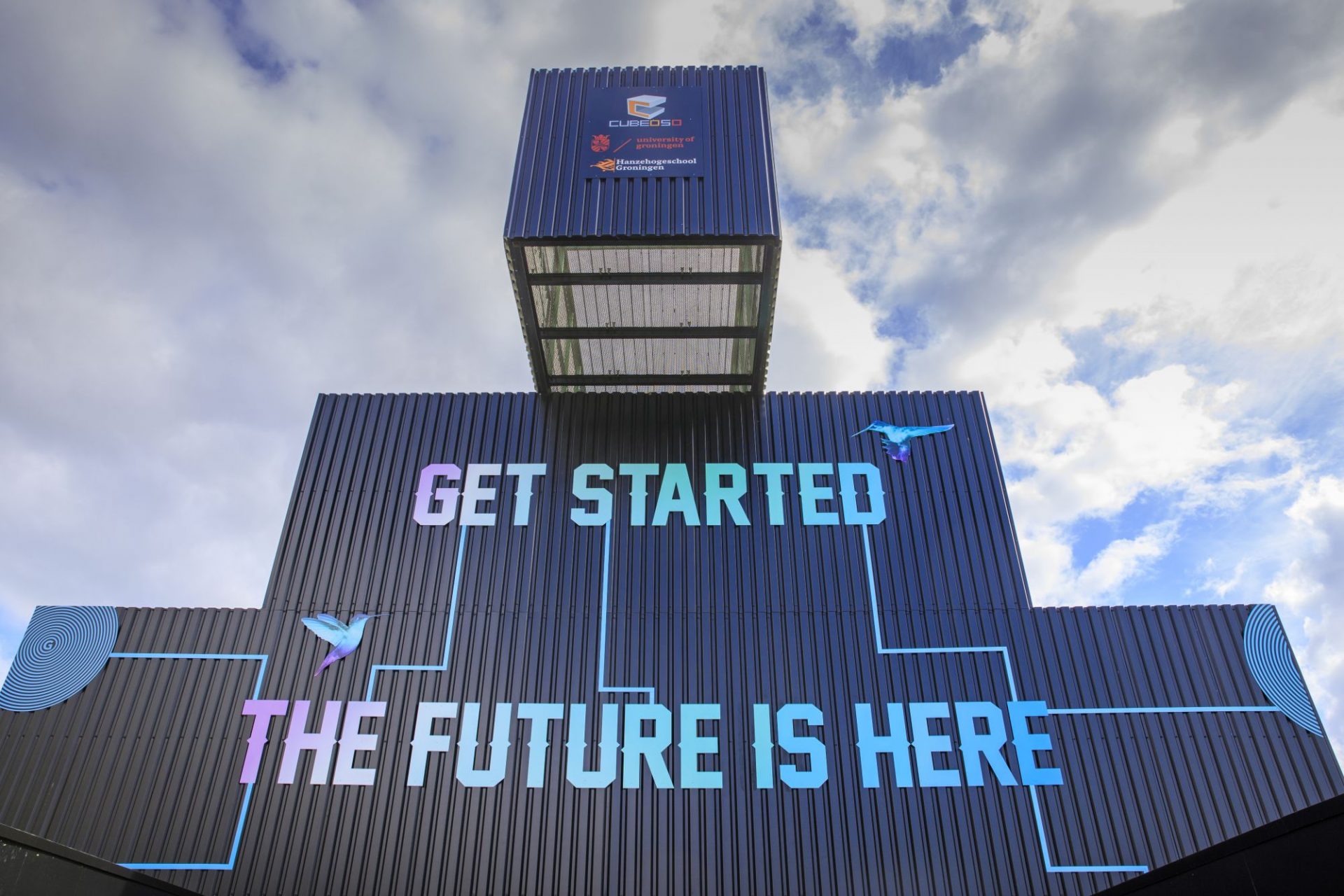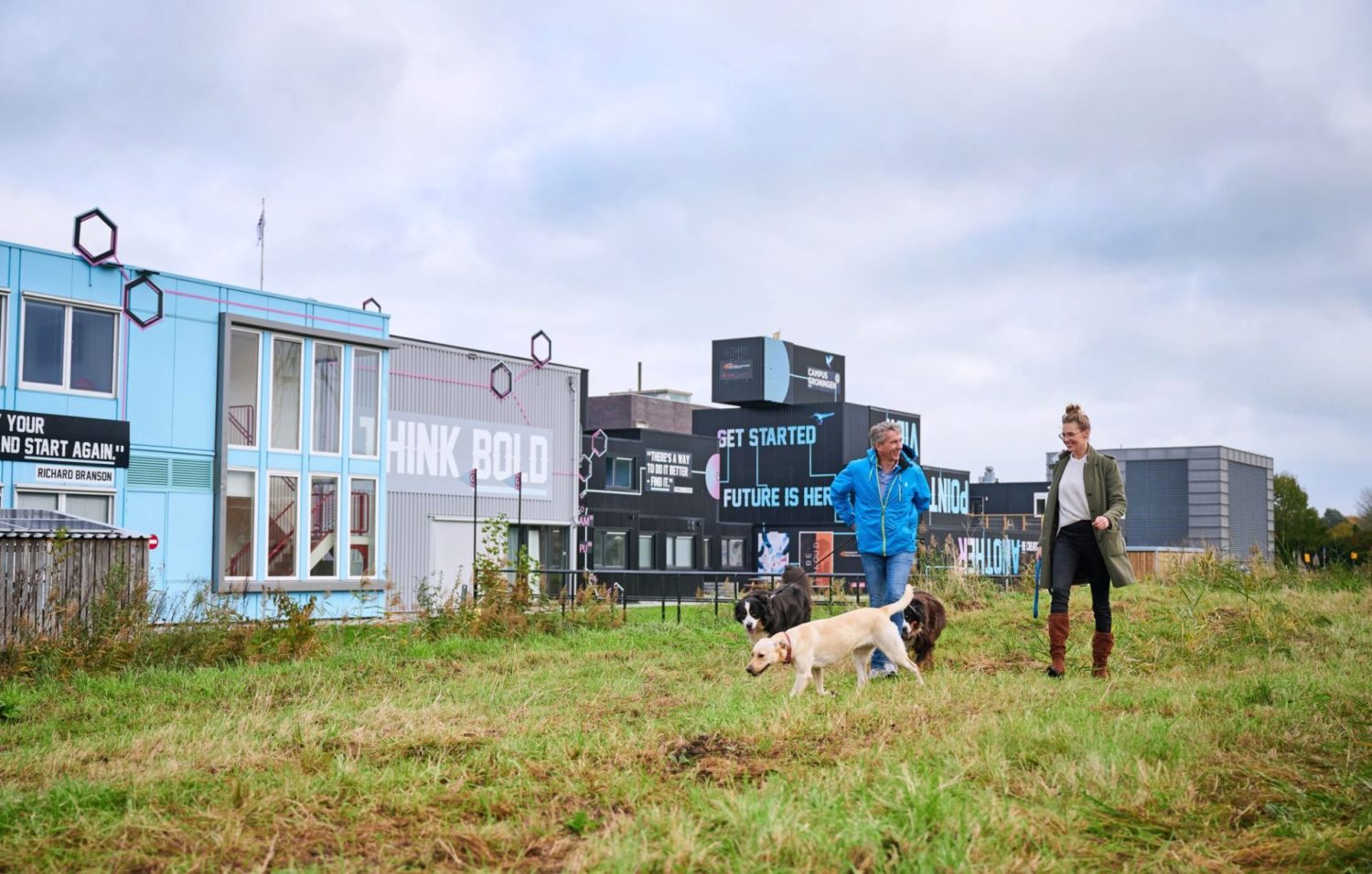Campus Groningen is an important incubator for innovation, but with an emphatic connection to the North Netherlands region. 'That's why NOM is an important partner for us,' says Campus manager Lisanne Brakenhoff. 'We mainly want to be a host for 'the smart start,' and then look at how companies can scale up and grow in the region.
Even though "nothing beats Groningen," even in this dynamic hotspot the available space is not infinite. Therefore, an eye for the region and efficient land use are essential for the Campus. 'Besides focusing on community building and campus services, we very consciously focus on area management,' says Lisanne, who has been involved with the Campus since 2012. 'We want to use physical space as smartly as possible, and that also requires an economic vision for the Campus area: What is needed to build a strong ecosystem? And how do you contribute to open innovation through infrastructure? After all, it is the people who create magic on Campus. Buildings are the physical building blocks; then it's about providing good facilities - from catering facilities to labs and office spaces - as well as inspiring events, in order to stimulate encounters, knowledge sharing and open innovation.'

'Open Air' meeting between Campus Manager Lisanne Brakenhoff and Sander Oosterhof (responsible for acquisition and development NOM)
In the middle of the region
At this corona time, the physical benefit of the Campus is levelling off a bit. "True, we can't host on-site meetings for now," Lisanne points out, "but the community also has a strong digital side that comes in handy now. And we notice how a good foundation has already been laid on the Campus for a thriving ecosystem. Involved parties know how to find each other well, because people are still looking for creative ways to keep innovating together.
On the one hand, you can't do without a physical incubator; on the other hand, you also want to be able to find each other from a distance, which is why we want to be at the center of the region. Here on the Campus we have all the facilities for cross-fertilization and R&D - 'the smart start' - while the region offers opportunities for the follow-up. And that is also what we aim for: here mainly the pilot plants, elsewhere the large sites and all the activity resulting from innovations.'
According to Lisanne, NOM is an important partner in proactively determining the establishment framework on Campus Groningen. 'In setting up the ideal Campus, NOM also thinks along with us. They have a large network and insight into which projects and companies would fit in well here. Investment is not just about money; it is also about making space and opportunities available.
The Campus players stand together in their quest to carefully choose parties and actively bring them here, but at the same time we want to remain open and accessible to the region. That is why we also make facilities available for companies that do not have a place on the Campus, but can contribute to innovation in the Northern Netherlands.

Good business climate
NOM has noticed that Campus Groningen is of increasing significance for economic development in the northern Netherlands. Sander Oosterhof, who manages both acquisition and innovation at NOM, clearly sees the added value of the Campus. 'It is a hotspot of knowledge and facilities. Existing regional companies and startups benefit from this, while it is also a very attractive factor in the business climate of the Northern Netherlands. We notice in our acquisition efforts towards sought-after companies how essential a good supply chain and clustered knowledge clusters are. By focusing on the regional core sectors of agri-food, energy, health, chemistry and digital economy (think smart industry, application of big data and artificial intelligence, ed.) the Campus offers a place where large parties such as Avebe and DEMCOM would like to be. This then creates a snowball effect that we see getting stronger and stronger.'
DEMCON, alongside Ducom, Cliq Swiss and MercachemSyncom, is one of the innovative parties that have committed to the newest shoot on the Campus stem: the Chemistry & Engineering Innovation Center, which will be completed in 2021. 'We are also providing space in that building for two new innovation labs,' says Lisanne. 'Meant for companies doing research in either the chemical and pharmaceutical industries, or in the field of engineering. In these labs they can use high-end workshops, innovative equipment, spaces for product design and prototypes and, of course, opportunities for meetings, networking and office work. While construction is in full swing, we are already working from the Campus - in conjunction with NOM/ Investment Fund Groningen and other stakeholders - to further expand the ecosystem around chemistry and engineering by attracting companies to the innovation labs.'

Community Fund
In addition to space and facilities, access to finance is also an important element at Campus Groningen. Innovation is necessary to keep the economy healthy, and smaller companies also play a major role in this. 'That makes access to capital essential,' says Lisanne. 'We provide insight into and access to various initiatives, funds and schemes, in which NOM is also an important partner. To set up even better capital for tomorrow with our stakeholders, we launched the Campus Community Fund in September. Investment was already happening in abundance, but by explicitly pooling resources in this new fund, we expect to make more impact. An investment strategy of 500 million has been laid down for the next five years, so that the Community Fund can convert the knowledge and skills on the Campus and in the region even more effectively into important innovations for the Northern Netherlands.'
Important "Drivers for Growth" are projects that fit within the Campus' five core sectors (agri-food, energy, health, chemistry and digital economy) and that, among other things, make economic and social impact and contribute to cross-pollinations. 'It's about learning to think and work more and more from one ecosystem,' Lisanne emphasizes. 'And that is exactly the signal we are sending with the Campus Community Fund. Apart from practical advantages such as shortening the processing time for applications, we are showing that we operate as a whole. If the Northern Netherlands wants to play a significant international role, we can only do so if we do it together. The ecosystem that we create here on the Campus must have an effect on the region. In this way we can make a real impact, from 'the smart beginning' through to business activity in a healthy economic and social climate.
Campus Groningen
Campus Groningen is a triple helix collaboration in which the University of Groningen, the UMCG, the Hanzehogeschool, the municipality and province of Groningen, NOM and established companies work together to better manage innovation.
